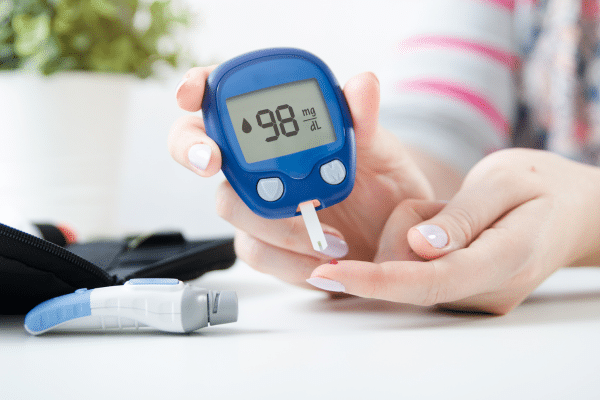Carbonated drinks, a staple in diets worldwide, are often associated with refreshment and enjoyment. However, alongside their widespread popularity, there is a growing concern about their impact on health. This blog post aims to shed light on various ways these fizzy beverages might negatively affect one’s well-being. From dental issues to weight management challenges, the effects of these drinks are far-reaching. Understanding these implications is crucial for making informed choices about consumption.
Contents
Dental Health Risks

The impact of carbonated drinks on dental health is significant. The combination of high sugar content and acidity in these beverages creates a perfect storm for dental problems. Studies show that regular consumption can lead to tooth decay and enamel erosion, primarily due to the erosive acids present in these drinks. Dentists often warn about the dangers of frequent sipping of carbonated beverages, which continually exposes teeth to these harmful acids.
Furthermore, the situation is exacerbated by the fact that many people do not immediately brush their teeth after consuming these drinks, allowing the acids and sugars to remain in contact with the enamel for extended periods. This prolonged exposure accelerates the damage to tooth enamel, making it more susceptible to cavities and decay. The role of these beverages in dental erosion has been well-documented, leading to increased advocacy for moderation in their consumption.
Weight Gain And Obesity

Carbonated drinks, especially those high in sugar, play a significant role in the global obesity epidemic. The calories in these beverages are often overlooked, but they contribute substantially to daily energy intake. Consumption of these high-calorie drinks leads to weight gain, primarily when they are not compensated for by reducing caloric intake from other sources. This caloric surplus, over time, contributes significantly to obesity, a condition linked to numerous health issues like heart disease and diabetes.
The effect on body weight is not just a matter of calories. The type of sugar most commonly used in these beverages, high-fructose corn syrup, has been shown to have different metabolic effects than other sugars, potentially making it easier to accumulate fat. These drinks also tend to be less satiating than solid foods, leading to increased overall calorie consumption. Consequently, habitual intake of carbonated sugary drinks is a risk factor for obesity, independent of other dietary habits.
Bone Health Concerns

The link between carbonated drinks and bone health is a topic of much debate and research. Particularly concerning are colas, which often contain phosphoric acid, a compound that might interfere with calcium absorption and lead to bone weakening. Observational studies have noted an association between high consumption of these drinks and reduced bone mineral density in some population groups, particularly in women.
In addition to the potential direct effects of ingredients like phosphoric acid, there’s also concern about the indirect impact. The consumption of carbonated beverages, particularly by children and adolescents, often displaces milk and other calcium-rich drinks in the diet. This displacement can result in inadequate calcium intake, crucial for building strong bones during these formative years. Maintaining a balanced diet, including calcium-rich foods and beverages, is essential for bone health, and overconsumption of carbonated drinks might undermine this balance.
Gastrointestinal Effects

Carbonated drinks have a notable impact on the gastrointestinal system. The carbonation in these beverages can lead to bloating and discomfort, as the gas can accumulate in the stomach and intestines. This can be particularly uncomfortable for individuals with sensitive digestive systems or conditions like irritable bowel syndrome. Furthermore, the high levels of acidity in many carbonated drinks can exacerbate symptoms of acid reflux and heartburn, as the acidic content can irritate the esophagus and stomach lining.
In addition, the consumption of these beverages may alter the natural acidity of the stomach, potentially affecting digestion. The normal digestive process relies on a delicate balance of acid and enzymes, and the added acidity from carbonated drinks can disrupt this. For individuals who consume these drinks in large quantities, there can be a significant impact on digestive health, leading to a range of discomforts, from mild indigestion to more serious conditions like gastroesophageal reflux disease (GERD).
Impact On Blood Sugar And Diabetes Risk

The relationship between carbonated drinks and blood sugar levels is a critical area of concern, particularly regarding diabetes risk. High sugar content in these beverages leads to rapid spikes in blood sugar levels, requiring the pancreas to release large amounts of insulin to manage this influx. Over time, this can lead to insulin resistance, a key factor in the development of type 2 diabetes. Regular consumption of sugary carbonated drinks has been linked in numerous studies to an increased risk of developing this chronic condition.
Moreover, the immediate impact of these sugar spikes can also be problematic. They can lead to energy crashes and cravings, contributing to a cycle of high sugar consumption. This pattern not only increases the risk of diabetes but also affects overall energy levels and mood. The role of sugar-sweetened carbonated beverages in the global diabetes epidemic is increasingly recognized, prompting calls for reduced consumption and better public health policies.
Behavioral And Psychological Effects

Carbonated drinks, particularly those containing caffeine and sugar, have a significant impact on mental and emotional well-being. Caffeine is a known stimulant, and its presence in many carbonated beverages can lead to increased alertness and energy. However, this can also result in anxiety, jitteriness, and disrupted sleep patterns, especially when consumed in large quantities or later in the day. The mood-enhancing effects of sugar, coupled with caffeine, can create a temporary sense of well-being, followed by a crash in energy and mood.
The potential for dependency on these drinks is another concern. Regular consumption can lead to caffeine dependence, characterized by withdrawal symptoms like headaches, fatigue, and irritability when intake is reduced. This dependence can make it challenging to reduce or eliminate these beverages from the diet, creating a cycle of habitual consumption. The psychological effects of carbonated drinks, therefore, extend beyond immediate mood changes, potentially impacting overall mental health and lifestyle choices.
The Bottom Line
In summary, the consumption of carbonated drinks, particularly those high in sugar or artificial sweeteners, poses several health risks. From dental erosion and weight gain to potential impacts on bone health, gastrointestinal health, blood sugar levels, and mental well-being, these beverages can affect various aspects of health. While they can be enjoyed in moderation, it is important to be mindful of their potential effects and consider healthier alternatives. Balancing one’s diet with nutrient-rich foods and drinks, staying hydrated with water, and being aware of the hidden health costs of carbonated beverages can contribute significantly to long-term health and well-being.


